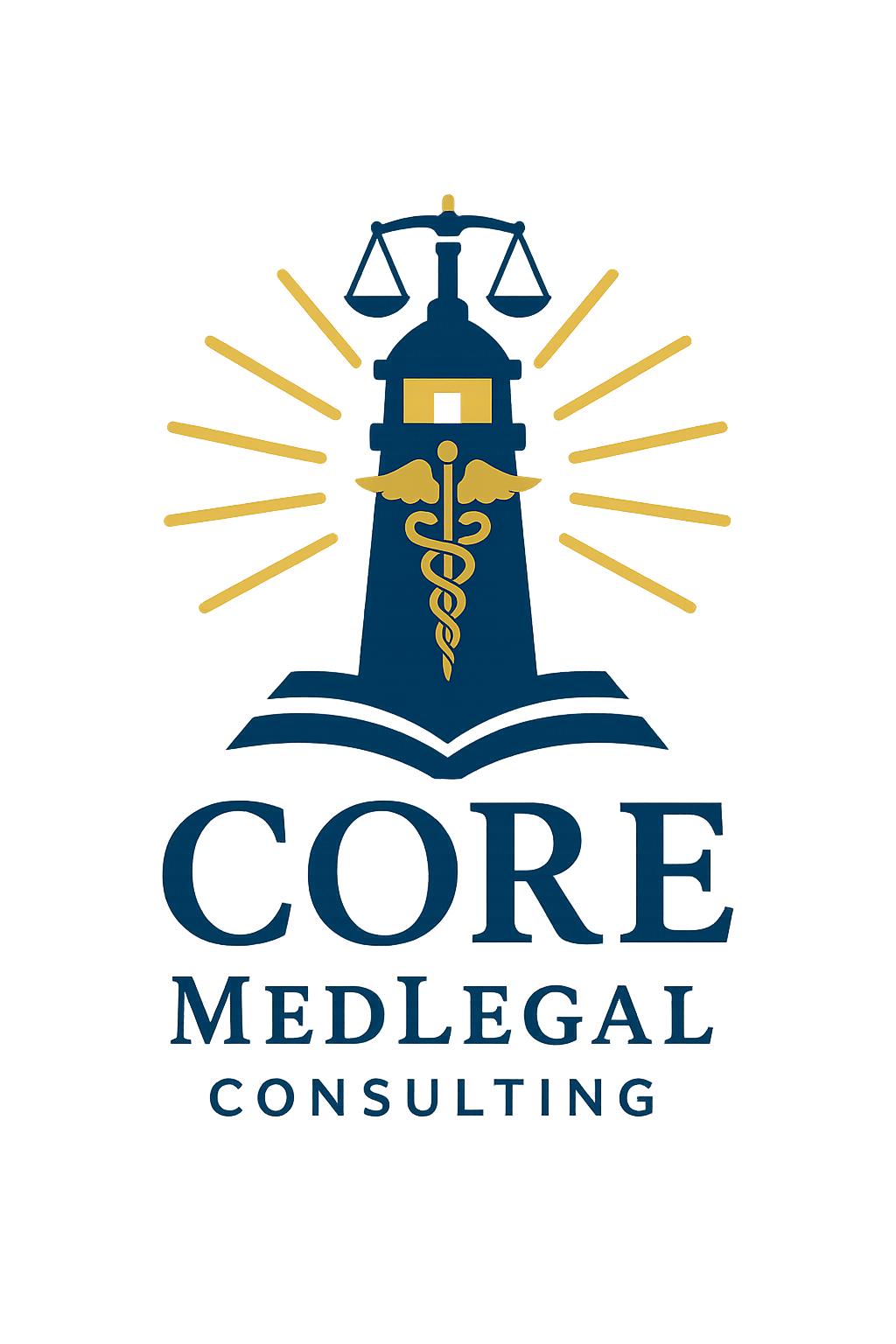Case Strategy in Medical Malpractice and Personal Injury: Perspectives for Plaintiff and Defense
posted by: Sandy Harman, DNP, AGACNP-BC, ENP-BC, FNP-BC, LNC

Medical malpractice and personal injury litigation requires more than presenting clinical facts—it demands a strategic framework that supports causation, credibility, and clarity. Whether you represent the injured party or the accused provider, the approach must be tailored, evidence-based, and thoughtfully executed.
At CORE MedLegal Consulting, we assist both plaintiff and defense teams in navigating these complexities. Here's how strategy differs—and aligns—on both sides of the courtroom.
1. Establishing the Standard of Care
- Plaintiff Strategy:
The plaintiff must demonstrate that the healthcare provider deviated from the accepted standard of care for the clinical scenario. This often involves citing published guidelines (e.g., ACEP, ACOG, AORN), comparing actions to local institutional policies, or referencing expert consensus. - Defense Strategy:
The defense focuses on showing that care was reasonable under the circumstances, even if the outcome was unfavorable. Highlighting documentation of clinical judgment, evolving patient presentations, and adherence to institutional protocols is essential.
🔎 CORE Tip: Our consultants identify applicable standards, analyze actions in context, and prepare detailed timelines to support or refute alleged deviations.
2. Causation: Linking Breach to Harm
- Plaintiff Strategy:
It's not enough to prove that a mistake occurred—there must be a direct link between the breach and the injury. Plaintiffs must demonstrate that “but for” the negligence, the outcome would have been different. - Defense Strategy:
Defense often argues that pre-existing conditions, comorbidities, or timing of presentation—not the provider's actions—led to the adverse outcome. A strong causation defense relies on highlighting alternate explanations supported by the record.
🔎 CORE Tip: We help attorneys assess causation early in the case, minimizing the risk of weak arguments that may be excluded or discredited later.
3. Documentation & Records Strategy
- Plaintiff Strategy:
Plaintiffs emphasize missing, altered, or vague documentation as potential signs of negligence. Inconsistencies between nursing notes, provider entries, and electronic timestamps can reveal communication gaps or delays in care. - Defense Strategy:
The defense leans heavily on well-documented actions, especially when complications were anticipated or addressed promptly. A thorough chart review can highlight that adverse outcomes were recognized and treated appropriately.
🔎 CORE Tip: Our LNCs conduct comprehensive record audits to find both helpful and harmful entries, helping legal teams stay fully prepared.
4. Expert Witness Use
- Plaintiff Strategy:
Plaintiffs typically engage one or more experts early to validate breach and causation. These opinions often form the backbone of the case strategy and may influence early settlement opportunities. - Defense Strategy:
The defense uses experts to defend clinical decisions, explain physiology, and undermine plaintiff expert credibility. The right expert can frame complications as unfortunate but not negligent.
🔎 CORE Tip: We assist in locating credible, board-certified experts and prepare them with literature reviews, deposition outlines, and visual exhibits.
5. Damages and Prognosis
- Plaintiff Strategy:
Emphasizing long-term impact is critical—lost wages, future care costs, loss of consortium, and pain and suffering are highlighted. A life care planner or vocational expert may be introduced. - Defense Strategy:
The defense may minimize damages by pointing to functional recovery, lack of permanent disability, or speculative claims. Surveillance footage or social media may also play a role.
🔎 CORE Tip: We summarize damages supported by the medical record and flag gaps or overstatements in claims.
⚖️ The Strategic Advantage of Clinical Insight
At CORE MedLegal Consulting, we believe strategy is built on clarity, evidence, and perspective. Whether assisting plaintiff or defense, our role is to illuminate the clinical truths that matter in litigation.
From early merit review to deposition prep and expert coordination, we help you build a stronger, more defensible case—whatever side you're on.



